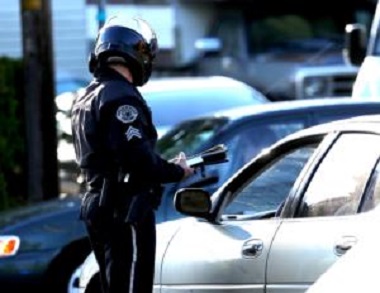
On this day, August 22, 2002, President George W. Bush proposed to end the government's "hands-off" policy in national forests and ease logging restrictions in fire-prone areas.
Also on this day, August 22, 2014, the State of Oregon filed a $200 million suit against Oracle Corp. and several executives over the company's role in creating the troubled website for the state's online health insurance exchange.
Also on this day, August 22, 2020, demonstrators faced off in Portland with the two sides -- one aligned with a "Back the Blue" rally and the other a Black Lives Matter counter-demonstration -- reportedly largely ignoring police warnings. Ultimately, Department of Homeland Security officers deemed the gatherings unlawful and moved through the plaza, forcing the crowd to disperse.
Searches of Black/African Americans not at a disparate rate
The
Stops Data Collection Report is an annual assessment of traffic stops for drivers and pedestrians in Portland by the Portland Police Bureau.
The Portland Police Bureau is taking necessary steps to identify areas of improvement in the way officers make traffic stops. Beginning January 1, 2021, the Portland Police Bureau will begin collecting new data points to help identify improvements that can be made to the way traffic stops are conducted.
In a commitment to change and improve, the Portland Police Bureau needs to collect this new information and implement new accountability measures related to searches. PPB claims they continue to make improvements to increase understanding of the data and to identify opportunities to reduce disproportionate outcomes. Some next steps include:
- Collection of additional data points regarding the stop reason, such as reasonable suspicion or probable cause of a non-traffic crime, to better understand how stops are used as a component of crime reduction and prevention.
- Changes to the search data points to collect all search criteria even though consent was requested, including other warrant exceptions and warrants.
- Collection of additional data points to identify mandatory arrests.
- Training to improve stops data collection and understanding of search criteria. The training will begin this week and be completed by the end of the year.
- The Bureau will begin audio recording consent searches. The training for this will be forth coming.
- Leverage technical assistance offered as part of the State of Oregon's Statistical Transparency of Policing (STOPS) program to address disparities identified within this report and the state's report.
"This data provides PPB with an opportunity to improve and seek out additional tools and resources," said Chief Chuck Lovell. "Stops data helps us realize over-representation in the criminal justice system still exists. We understand this creates fear and distrust within the community. It's important to continue to enhance the data collection process to give us a better understanding of the context of stops, searches and arrests. We will continue to incorporate these system changes, policy changes and training, including how to better capture consent searches."
The report indicates several key findings:
- Drivers were stopped at rates similar to their expected values with stops conducted by Traffic Division officers compared to the Injury Collision Benchmark and stops conducted by Non-Traffic division officers compared to the Crime Victimization Benchmark.
- In 2019, 4.6% of stops included a discretionary search. Non-Traffic division (patrol and investigative) officers performed 93% of the searches and the majority of these were consent searches.
- Black/African American drivers were searched comparatively more than other racial/ethnic groups, though not at a disparate rate.
- Contraband was found on 48% of all searches.
- The majority of searches (70.4%) were consent searches. Drivers perceived to be either Black/African American were asked to consent to a search at almost twice the rate of all other perceived racial groups. White individuals were significantly more likely to refuse a consent search than drivers perceived to be Black/African American or Hispanic / Latino.
- Officers performed 1,131 stops of pedestrians in 2019 -- a 95 percent increase over the prior year with the majority of stops occurring in Central Precinct (70.2%).
- Pedestrians stop rates were similar to prior years. Pedestrians perceived as White made up the majority (74.8%) of stops, followed by Black/African Americans (15.7%) and Hispanic or Latino (5.7%) pedestrians.
- Pedestrians are significantly more likely to be searched (13.6%) than drivers (4.6%). Probable Cause was the primary search method utilized for pedestrians (55.8%). No racial / ethnic group was disparately search in 2019.
A supplemental report relating to the former
Gun Violence Reduction Team's (GVRT) stop data is also available.
The GVRT utilized traffic stops as a tool to help investigate and prevent gun violence in the City. The supplemental report focuses on the following:
- Stop locations as they relate to where gun violence occurs in the city. 80% of GVRT stops were within a quarter mile of a gun violence incident.
- Subjects perceived to be Black/African American made up 52.1% of the stops, followed by White (32.2%), Hispanic or Latino (10.2%), Asian (2.8%), American Indian / Alaskan Native (1.1%), Native Hawaiian (0.9%), and Middle Eastern (0.6%).
- Black/African American subjects were searched more than expected, but not at disparate rates.
- Black subjects were significantly more likely to be searched with consent, while White subjects were significantly more likely to be searched with probable cause.
- 88% of all stops initiated by GVRT ended with a warning, written or verbal, at the end of the interaction - the highest in the Bureau.
--Ben Fisher| Post Date: 2020-11-19 16:15:34 | Last Update: 2020-11-19 17:00:55 |






